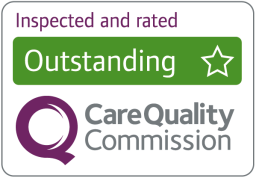Sterilisation and your health
When you’re thinking about sterilisation, it’s important to weigh up the risks to your health.
It’s a safe procedure but as you’ll need minor surgery under general anaesthetic, there’s a small chance of complications. There’s also a rare risk of having an ectopic pregnancy, even many years after sterilisation.
Complications of the procedure
There are 3 possible complications of the operation that you should know about:
Scarring, infection or bruising
You may get scarring, infection or bruising at the wound site. There will usually be 2 scars: one at the belly button and one lower down on the abdomen.
Damage to other organs or tissue
There’s a very small chance of damage to the bowel or other organs or blood vessels due to the surgery. This is very rare, but it does happen and will require an immediate – and more involved – operation to repair the damage.
This can happen when the surgeon makes the first cut to insert the fibre optic cable.
Learn more about what happens during the surgery.
Damage to the bowel noticed after surgery
The chance of bowel injury is very rare, it happens in about 1 in 3,000 people.
If your bowel was damaged during surgery and this wasn’t noticed at the time, it will usually cause fever and abdominal pain that starts 3-7 days after the operation.
If you experience this, you must contact your doctor immediately. A second, more extensive operation will be needed to repair the damage.
Ectopic pregnancy
Getting pregnant after you’ve been sterilised is rare, it happens to about 2 in 1,000 people. But if it does happen, then it’s more likely to be an ectopic pregnancy, where the fertilised egg implants outside the womb – for example in the fallopian tube. This can happen even many years after the sterilisation operation.
If you miss a period, have pregnancy symptoms at any time after sterilisation or have unexpected pain or bleeding, then do a pregnancy test immediately. See your doctor urgently if the test is positive. An ectopic pregnancy can be serious, so it’s important to get advice straight away.
There is no evidence of cancer risks
There’s no evidence to link female sterilisation with cancer of the breast, ovary or cervix or cancer of the lining of the uterus.
Everything you wanted to know about sexual health and wellbeing - your questions answered by our expert team.



